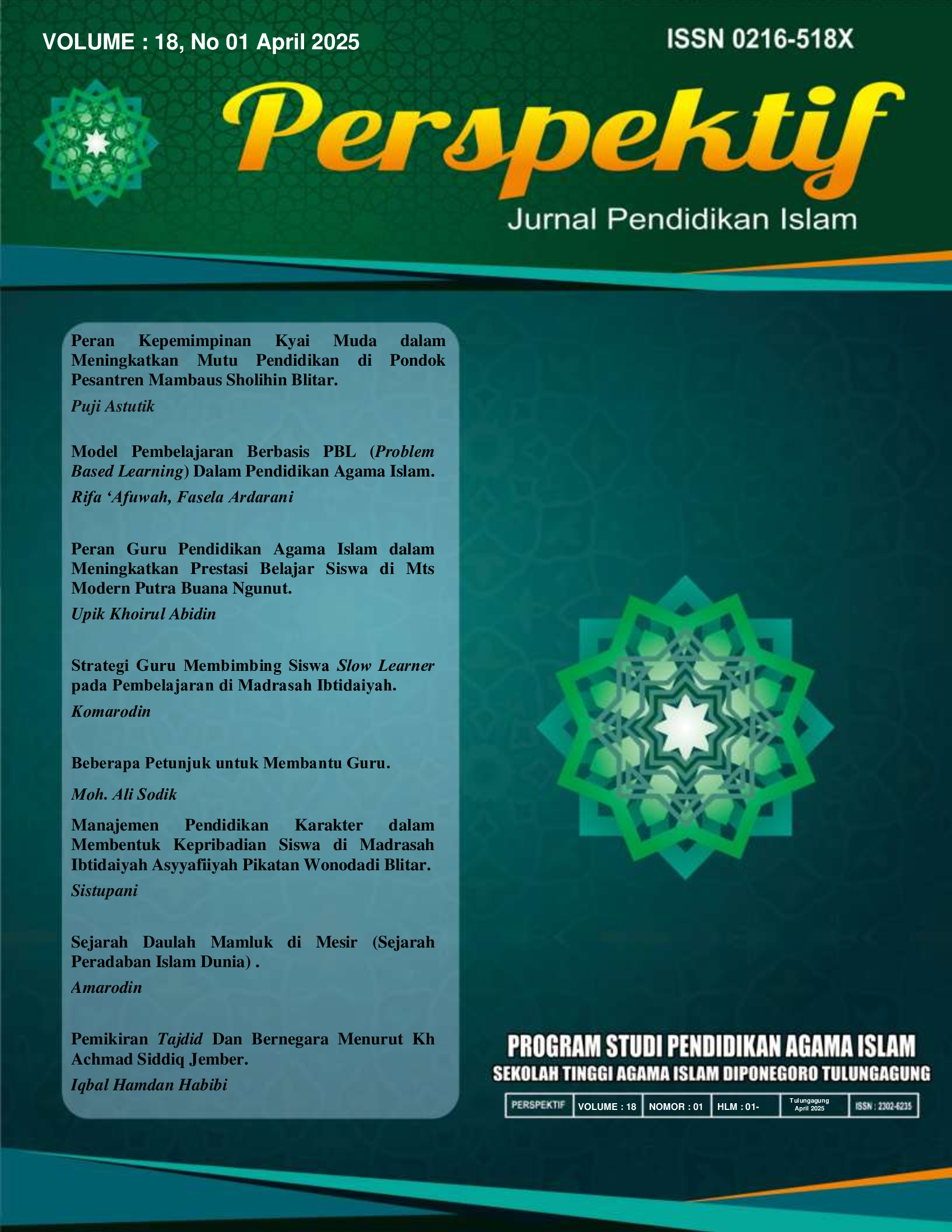Model Pembelajaran Berbasis PBL (Problem Based Leraning) Dalam Pembelajaran Agama Islam
Abstract
Abstract
This study examines the implementation of Problem Based Learning (PBL) in Islamic Religious Education (PAI) and its contribution to student engagement and the development of religious character. Using a qualitative approach based on library research, the study analyzes relevant scientific literature. The findings indicate that PBL positions students as active learners through the investigation of real-life problems, enhancing critical thinking, collaboration, communication, creativity, and the internalization of Islamic values. PBL stages problem orientation, organizing learning activities, independent inquiry, developing and presenting work, and reflection promote holistic and contextual learning. The implementation of PBL also fosters empathy, social responsibility, and ethical decision-making based on Islamic principles. Although challenges exist, such as teacher readiness and conventional assessment limitations, professional development and a collaborative learning culture enable PBL to be an effective instructional strategy. Overall, the findings suggest that PBL can integrate cognitive, affective, and psychomotor aspects in a balanced manner, making it relevant for cultivating students who are intellectually, morally, and spiritually mature in line with 21st-century educational demands.
Keywords: Problem Based Learning, Islamic Religious Education, Student Engagement, Religious Character




